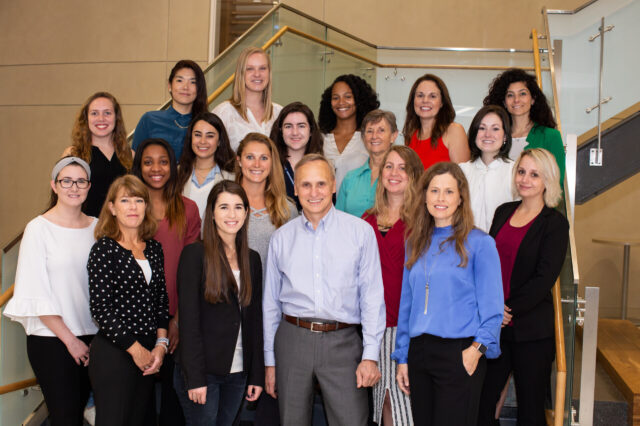Clinical trial of gene therapy for Duchenne muscular dystrophy underway at University of Florida Health

Screening has resumed in a clinical trial to test the effectiveness of a new investigational gene therapy for Duchenne muscular dystrophy. The clinical trial, which began in February with one patient dosed, is being led by University of Florida Health researcher Barry J. Byrne, M.D., Ph.D., who is principal investigator. The Phase I/II trial known as IGNITE DMD is evaluating the safety, tolerability and effectiveness of an investigational gene therapy known as SGT-001 in boys between the ages of 4 and 17.
Duchenne muscular dystrophy, or DMD, is a fatal genetic disorder that typically affects young boys. It causes progressive muscle degeneration and the buildup of fatty, fibrous tissue in place of muscle. DMD patients are typically wheelchair-bound as teenagers and most pass away by their late 20s. About one of every 3,500 boys worldwide has the disorder and there is no cure, according to the National Institutes of Health.
The investigational therapy uses a virus, known as an adeno-associated virus vector (AAV), to deliver a missing protein into cells. It contains the genetic instructions for a modified but functional version of dystrophin, a crucial muscle cell protein missing in DMD patients. In preclinical testing, data suggested that the investigational therapy has the potential to slow down or stop the disease.
“Based on the advanced study design and supporting evidence from extensive preclinical studies, I believe this potential therapy may be a transformative treatment for those living with DMD,” said Byrne, director of the UF Powell Gene Therapy Center and a pediatrics professor in the UF College of Medicine.
The study has an adaptive design, meaning that the first patient group will get a predetermined dose of SGT-001 but higher dose levels could follow after a review of safety data and clinical outcomes.
Patients in the study are being given a single intravenous infusion of SGT-001 and will be followed for two years. Up to 32 patients are anticipated to take part in the clinical trial, which is expected to be expanded to other clinical sites in the United States and abroad.
The clinical trial is being sponsored by Solid Biosciences, a Cambridge, MA-based biotechnology company. In 2015, UF’s Powell Gene Therapy Center formed a partnership with Solid to support the research and development of SGT-001 and advance its clinical program.
For information about enrollment in the clinical trial or other clinical questions, contact the IGNITE DMD study team at SGT001inquiries@peds.ufl.edu.
About the author
